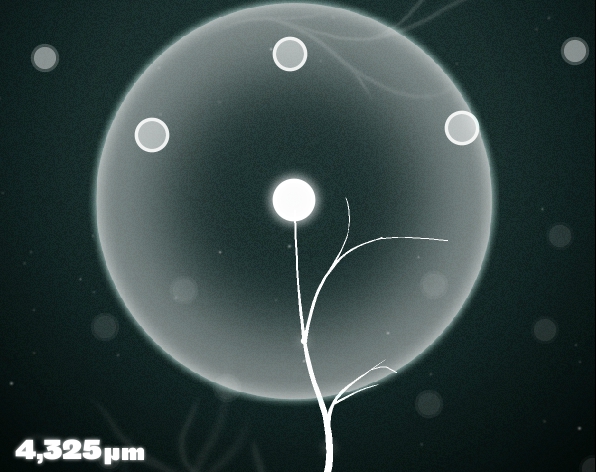This is a longer version of the article that appeared on the Wellcome Trust blog... Playing on the Brink of Climate Change
There can be little doubt that one of the major, if not the major challenge of the current age is the threat of climate change. Indeed many influential voices argue it is already here. For example in the book 'Eaarth' by Bill McKibben, the author argues that the planet we are living on is already a different place from the one that civilisation emerged out of several thousand years ago and this change comes with consequences. The Wellcome Trust has set understanding the health implications of climate change as a major policy point;
Climate change has been described as "the biggest global health threat of the 21st century" and is likely to affect the health of millions of people worldwide. Threats include heat waves and flooding, changing patterns of infectious diseases such as malaria and dengue, and water scarcity and rising sea levels, which could displace hundreds of thousands of people. The impacts will be greatest in low and middle-income countries.
Understanding the health impacts of climate change is a challenge for science. Communicating and acting upon that information is a challenge for all of us. Artists have been linking with scientists to help with this important process, for example the 2005 visit to the Arctic by a joint group of artists and scientists, which produced the novel Solar.
The arena of video games has also, in its own way responded too. There are games that look specifically at the health issues (such as Climate Health Impact by The Wellcome Trust and Playgen) and games that put the player in the position of trying to persuade the world's countries to act together (Fate of the World). But there are also games that use the changed world as a narrative setting to explore what that shared future might be, exploring climate change both as creative inspiration and as gameplay subject matter. The example of this I'm going to look at, and how the science has informed the creative content, is the game 'Brink'.
Brink is a first-person shooter – an action orientated game where the player sees through the eyes of an in-game character and whose interaction with the world is conducted from this first-person view. Most such games use staples such as aliens, World War II or terrorism as their setting. Brink takes a different path from the crowd and opts to use a climate changed world as a narrative setting, as the games writer, Edward Stern, noted when I spoken to him about the process of creating the game's setting;
We knew the narrative backdrop for Brink had to be visually distinctive and explain why people are fighting, what they’re fighting for, and why they don’t just leave. All of this seemed to require resource scarcity and isolation. Perhaps an island of some sort, but why would people be on an island? I’d read about www.SeaSteading.org, and seen some other amazing terraforming/engineering solutions to rising sea levels on Jeff Manaugh’s amazing BLDG BLOG. So that lead to the Ark: a techno-visionary artificial island, built to combat climate change, but cut off from the outside world and running out of spare parts… it wasn’t anything I’d seen in a game before, and seemed to offer a nice solution to our setting needs. But also, it plugged into current concerns.
Given how much the science drives what you know (and don't know) about climate change and given that it is fundamental to creating a credible view of it, Edward Stern embraced the gathering of credible sources as part of his research to inform his writing;
My training, such as it is, is as a Historian, so my test for researching a topic is; have I read the primary sources, or am I relying on secondary sources, or have I just read one book, or have I read several web posts but they’re all misquoting each other? I’ve been lucky enough to meet and be taught by some real, actual, factual experts in various topics and I know I’ll never be in that league. But as a concerned citizen and consumer, much less as a writer and infovore, climate change is something I had to know something about. The data and its interpretation get so complex so quickly, I’m pretty much reduced to reading bloggers acting as well-informed collators and aggregators who can summarise experts and some of the experts are bloggers, and some of the bloggers experts. I used to follow the science and the culture/media brouhaha surrounding it as best I could, mainly starting with www.scienceblogs.com and www.realclimate.org and following links from there. I couldn’t understand absolutely every detail of the Mann “Hockeystick” and the stolen CRU emails, but I went through them as thoroughly as I could, keeping as open a mind as I could. If I couldn’t be an active combatant in the information wars, I could at least be a well-informed civilian. I didn’t want to just skim the stuff so I could say in interviews that I had done so.
With all this information, how does the wealth of scientific information become converted into creative aspects of the game? Edward gives us a fascinating insight into that process;
No matter how profound an understanding of the science I might temporarily acquire, it wouldn’t necessarily give me things I could use for the game. I needed to understand as much as I could, but I also needed to find things to exploit dramatically and for gameplay. There’s the old statistics joke that the plural of anecdote is not data. But from a writer’s point of view, the singular of data is not anecdote – you can’t just invoke a scientific buzzword and hope that will make things seem credible or dramatic to a player/reader. It has to be something you can Show or Tell within the game, and games aren’t great as a storytelling medium. As the old joke goes, games are a medium because they’re neither rare, nor well done.
I love it when a game connects to the non-gaming bits of the brain. I always cite Deus Ex as the first game I played where I genuinely didn’t know what to do. Not just what the game would reward me most for, or what would move the action along, but because I genuinely didn’t know how I felt about the real world choices and issues the designers had put in their game for my character to deal with.
It is worth noting that games handle narrative in a very different way to a novel or a film. As an interactive medium, the player chooses the degree to which they engage with the story. They may choose to not listen to a key conversation or ignore a vital text. This makes layering narrative a challenge, as Edward explains;
People play games in very different ways. Some, like me, love the narrative detail, and will dawdle through the environment as slowly as possible, reading every sign and situation like a forensic trainee, because nothing was put there by accident. Many more gamers want a bit of story, but don’t want to get bogged down in the details. And a large majority of them just want to run around and blow stuff up. The challenge is to make the story stuff optional, so that it’s there for the players who want it, but not in the way of those who don’t.
I've played and completed Brink and it does indeed have a story that draws you in, as well as some great action too. The setting of the game and the characters responses to the climate-changed world they find themselves in is credible and engaging. Given that climate change is a hot-potato political issue and will be for some time, I also think its a bold decision to place the issue front-and-centre in a key part of popular culture - gaming. This is key as a growing number of people play games and see games as a primary source of understanding about the world around them. Climate change is an emotive issue for many reasons, which to Edward Stern made it a strong place to set a work of interactive fiction;
I was trying to make it as easy as possible for players to let the game stick in their minds, to plug into their existing concerns and prejudices about real world issues, and few people know or care absolutely nothing about climate change, whatever their outlook.
Thanks for your time, Edward!
(Past articles for the Wellcome Trust blog include one on Deus Ex:Human Revolution, Crysis 2 & Portal 2)







